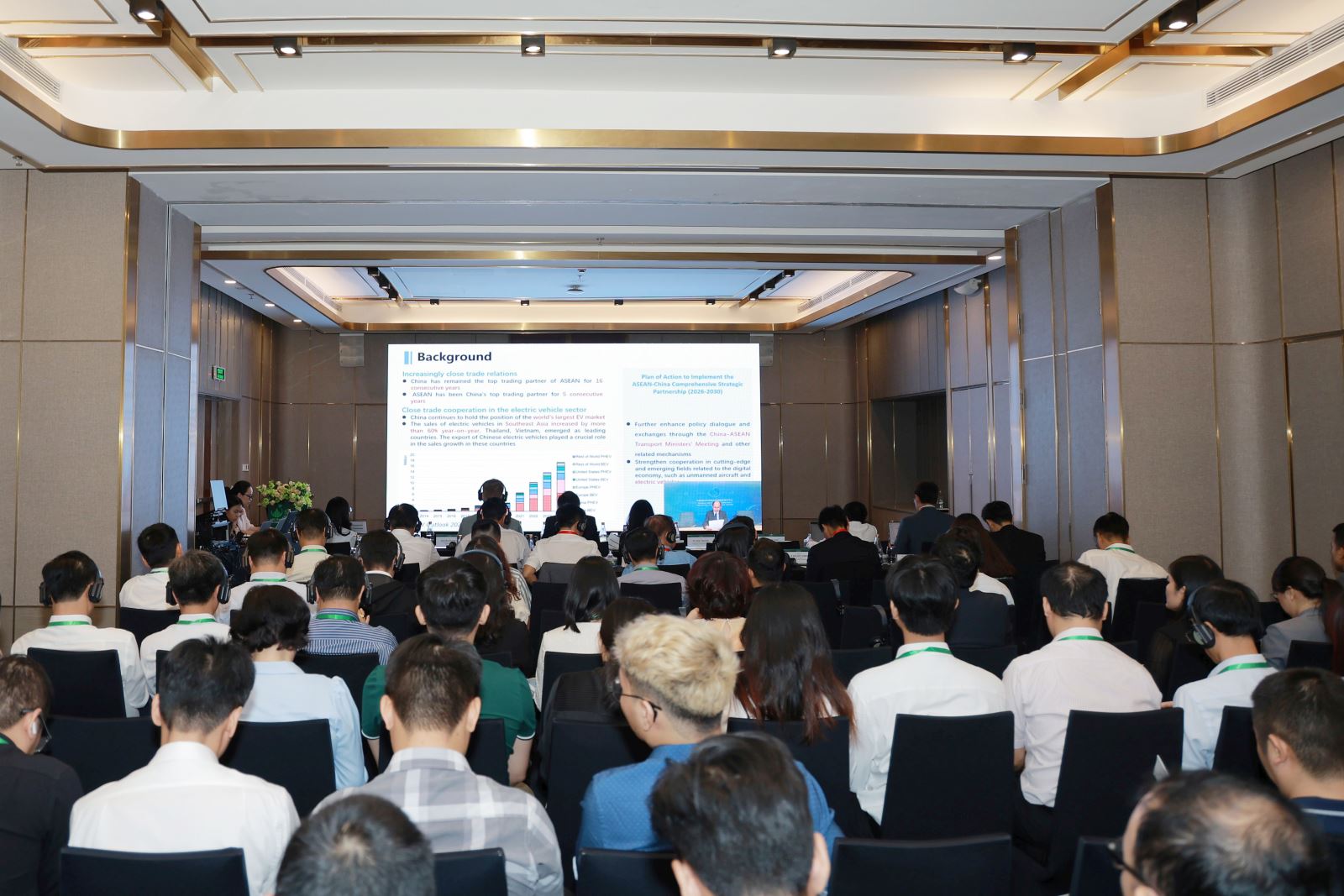On October 29th, 2025, in Ho Chi Minh City, a workshop on “Green Energy Transition in Transport” was held, with the participation of many domestic and international experts, managers, scientists, and representatives of businesses operating in the fields of energy, transport and environment. This event is within the framework of the Vietnam Green Building and Green Transport Week 2025, organized by the Ministry of Construction.
Speaking at the workshop, Mr. Nguyễn Hữu Tiến, Deputy Director General of the Department of Science, Technology, Environment and Building Materials (Ministry of Construction), stated that climate change and air pollution have now become major global challenges, forcing countries to shift their growth models toward a greener and more sustainable direction. Vietnam has clearly defined this objective through Resolution No. 24-NQ/TW on proactive climate change response, enhanced natural resource management and environmental protection, together with its strong international commitments made at COP26, which reaffirm the nation’s determination to achieve net-zero emissions by 2050.
According to Deputy Director Nguyen Huu Tien, the Prime Minister has approved the “Action Plan for the green energy transition and reduction of carbon and methane emission in the transport sector” in 2022, marking a strategic step in modernizing Vietnam's transport system towards low emissions.
“Green energy transition must be implemented synchronously across all five modes of transport: road, rail, inland waterways, maritime and aviation with specific roadmaps for each sector,” Tiến stated. He also emphasized that the success of this process requires close coordination among ministries, sectors, local authorities and enterprises; the promotion of public–private partnerships and green technology transfer; as well as the development of a high-quality workforce to support a new phase of development that is greener, smarter and more sustainable.

Workshop scene.
Ms. Trịnh Thị Bích Thủy, Officer of the Electric Mobility Program at the United Nations Development Programme (UNDP), stated that at recent climate conferences, particularly COP30, countries reached consensus on three major priorities: strengthening cooperation in responding to climate change, aligning climate action with people’s daily lives, and accelerating the implementation of the Paris Agreement.
In Vietnam, the number of private vehicles continues to grow rapidly, with road transport demand increasing by an average of 9-10% per year, while public transport currently meets only about 15% of travel needs in major cities. Developing low-emission transport not only helps reduce greenhouse gas emissions but also improves air quality, saves energy and operating costs, and promotes technological innovation.
According to Ms. Thủy, transport electrification is the key to cutting emissions, as emissions from the transport sector currently account for around 13% of global emissions and could triple by 2030 without intervention.
A highlight of the workshop was the presentation by Đỗ Đức Anh, a student from Hanoi-Amsterdam High School for the title “Zero Carbon Journey - Green School Transportation.” Đức Anh shared that protecting the environment is no longer a choice but a condition for humanity’s survival. His project aims to develop a “smoke-free school” model that reduces carbon emissions from students’ commuting activities, while fostering green mobility habits and sustainable consumption from an early age.
The project is implemented in three phases: Education - initiated through communication activities, workshops and social media challenges; Expansion - carried out via events such as “Run for a Green Planet” and “Green Learning Week”; and finally Sustainability - scaling up the model with the “Greensa reward system” that recognizes green behaviors, aiming for widespread implementation by 2030.
At the workshop, experts and presenters agreed that the green energy transition in the transport sector is not only a global trend but has become an urgent requirement for Vietnam as it fulfills its international commitments on emission reduction and sustainable development. To realize the goal of Net Zero by 2050, Vietnam needs to continue improving its institutional framework, introduce policies that encourage investment in clean technologies, develop charging infrastructure, biofuels and renewable energy; while also expanding international cooperation and strengthening public education to change travel and energy consumption behaviors.
At the end of the workshop, the representative of the Organizing Committee emphasized that green energy transition in transport sector is not only the task of the transport industry, but also the common responsibility of the entire society. This is the inevitable path for Vietnam to build a green economy, improve people’s quality of life and actively contribute to global efforts to respond to climate change.